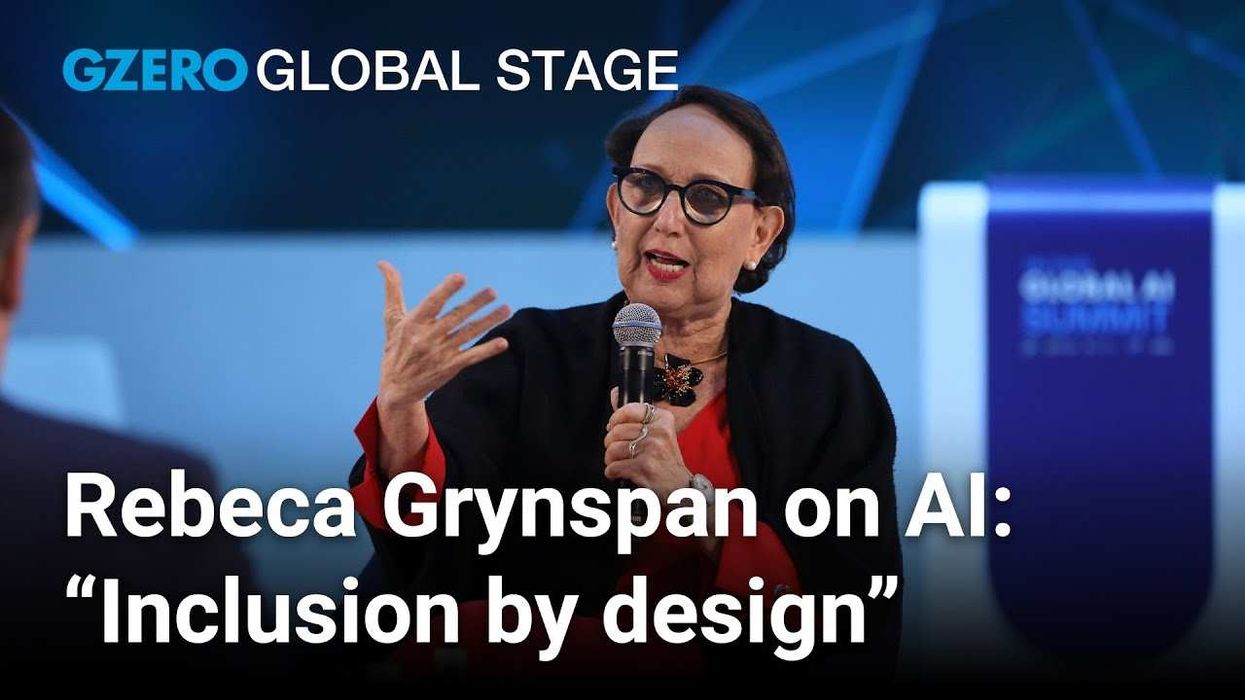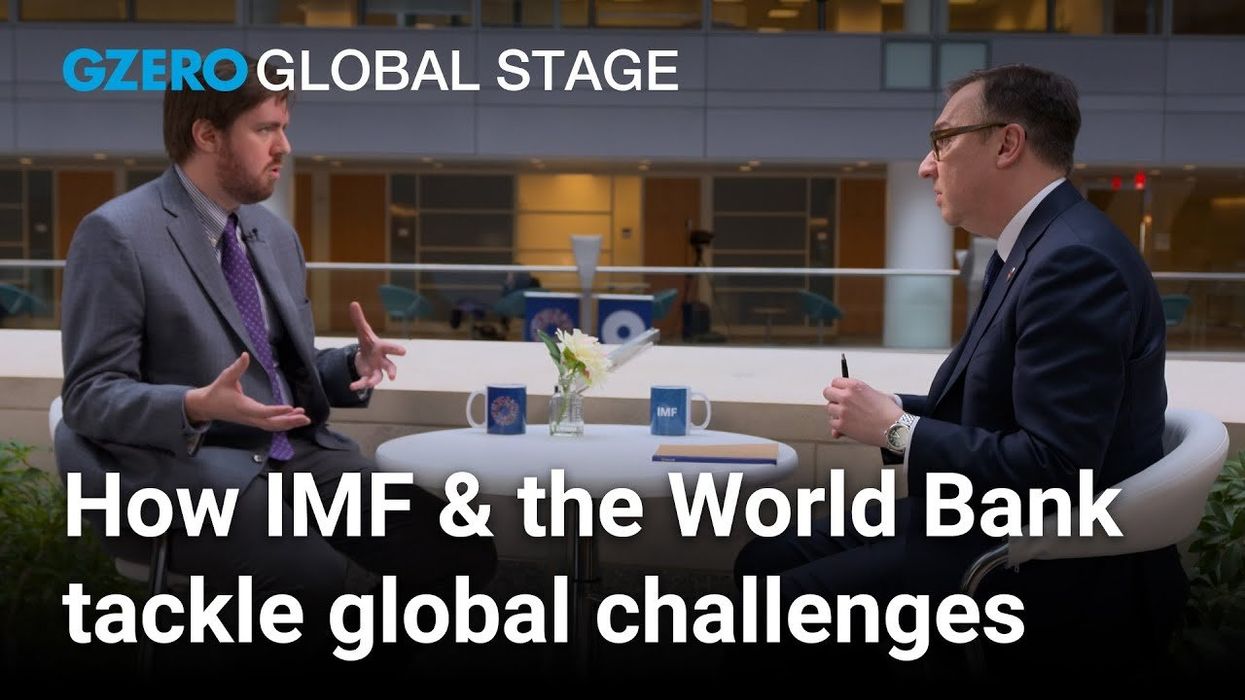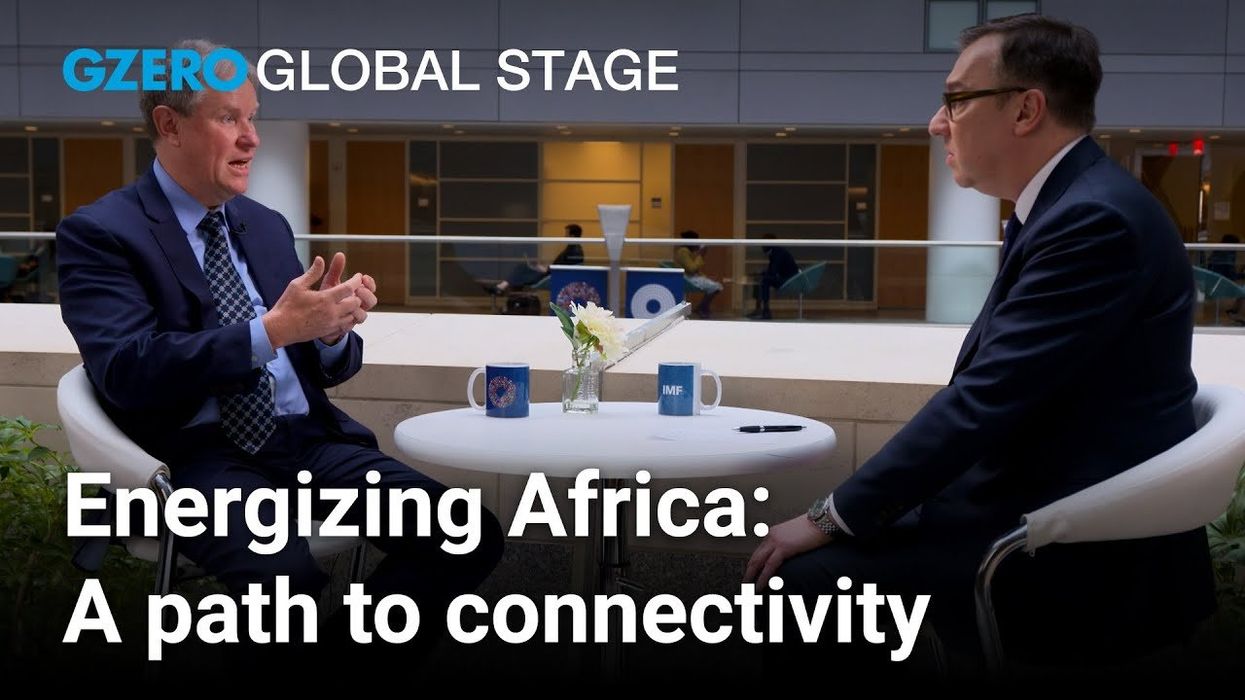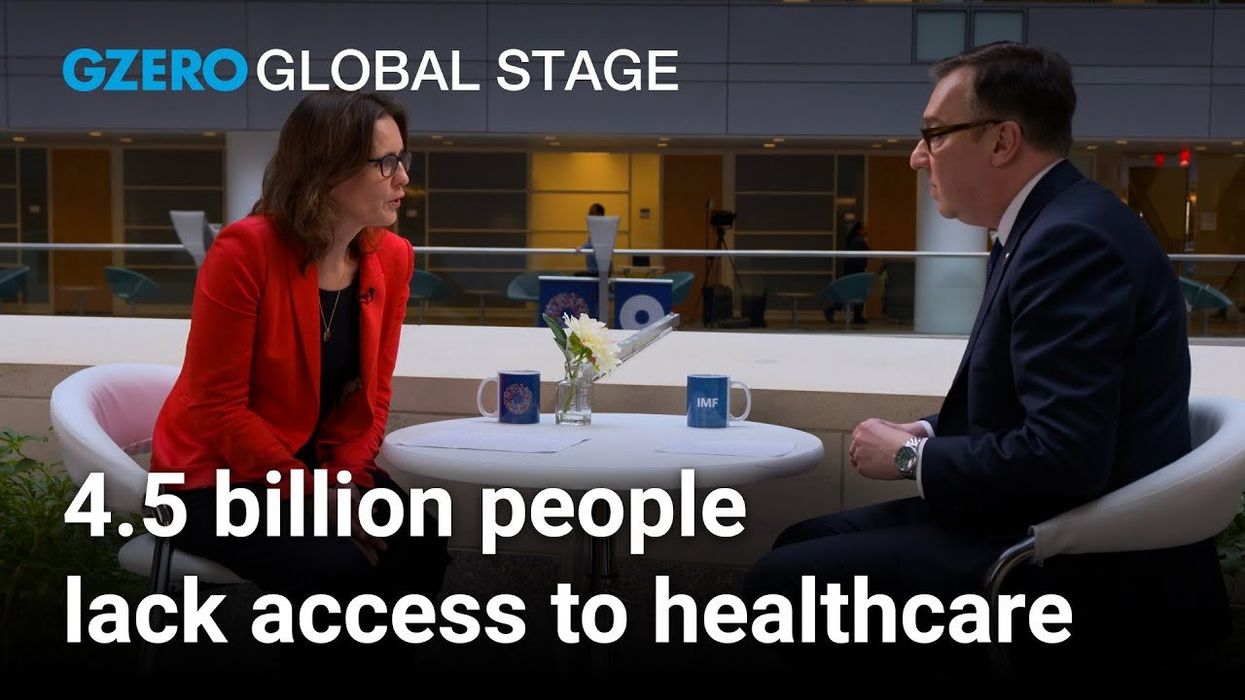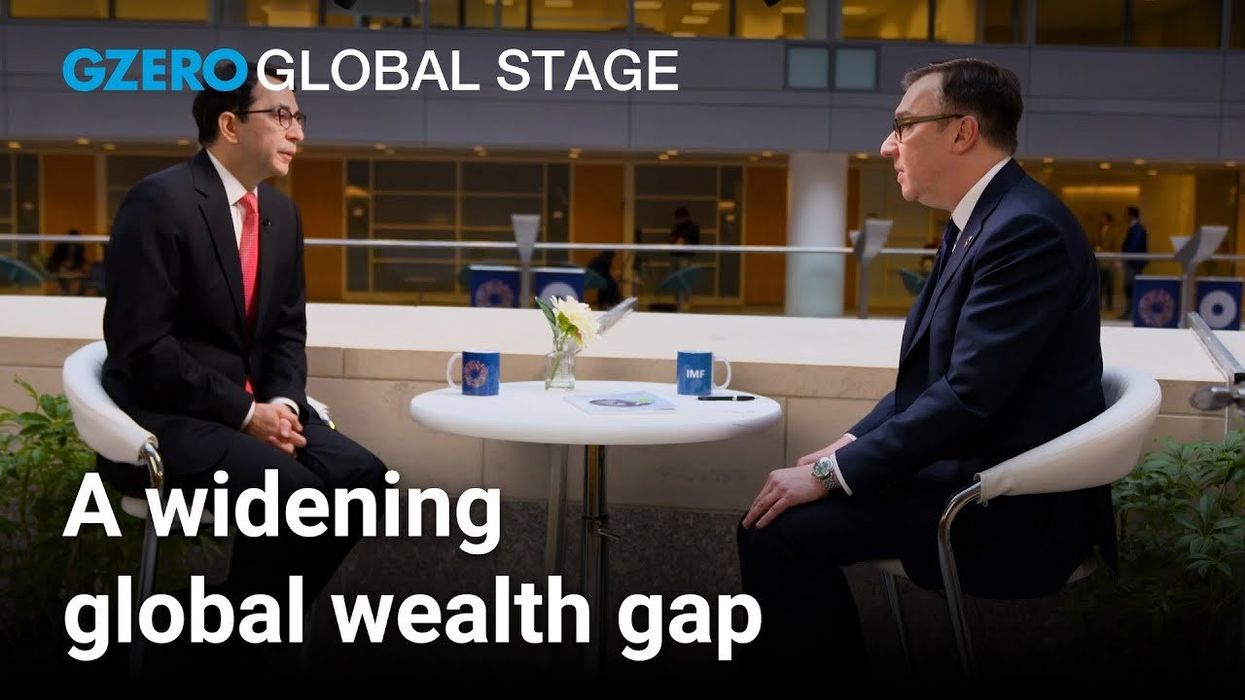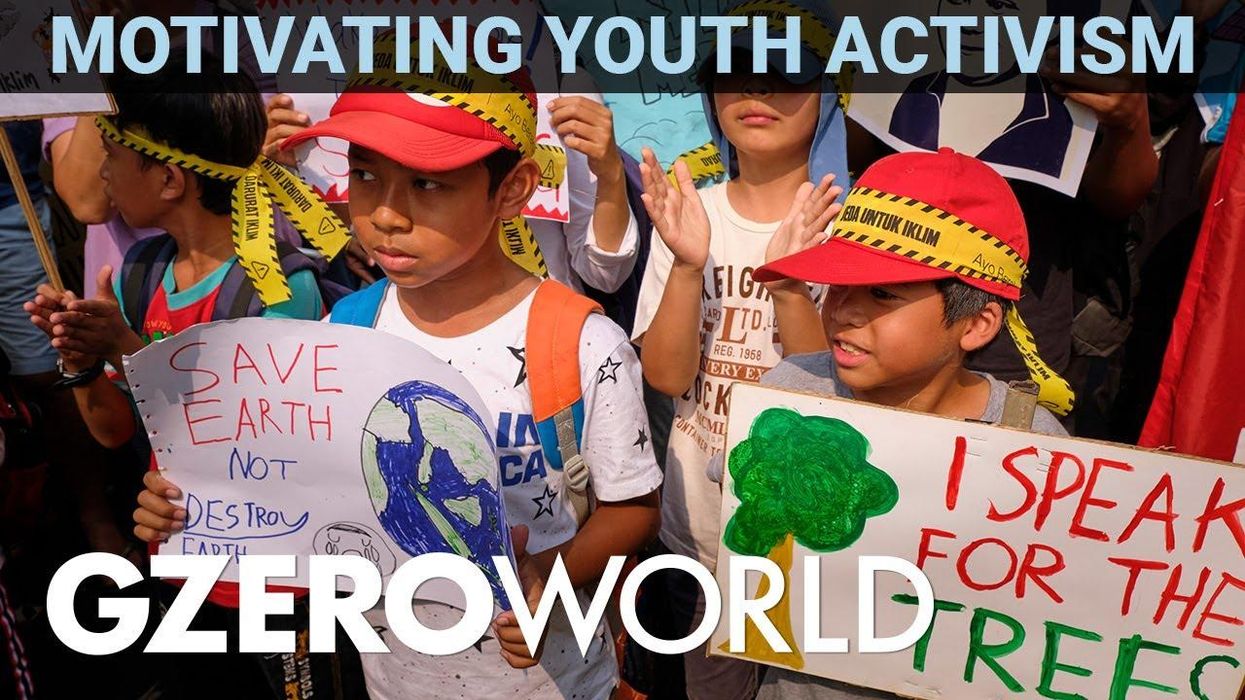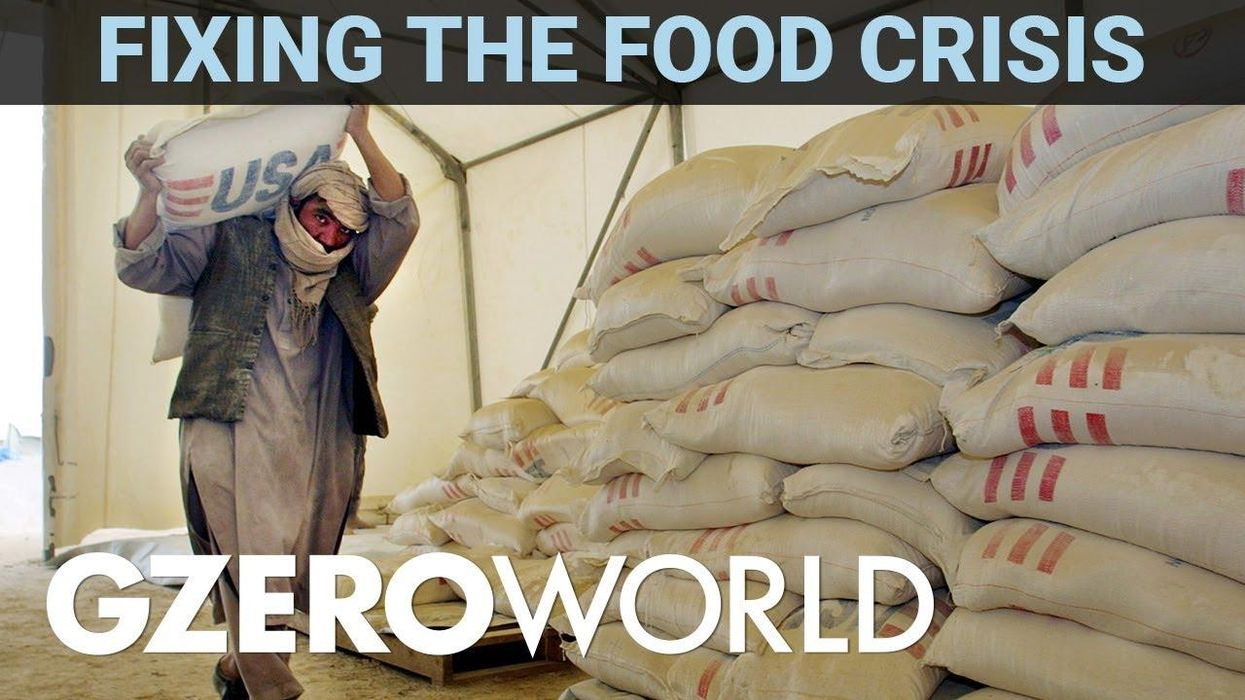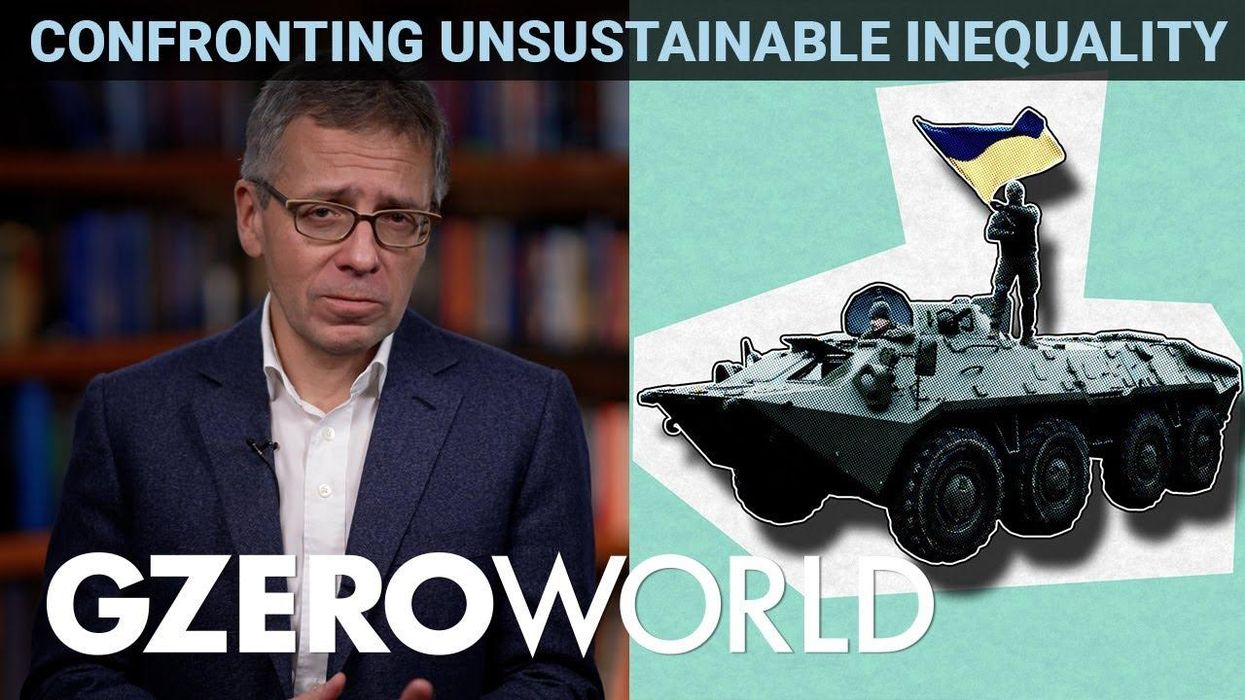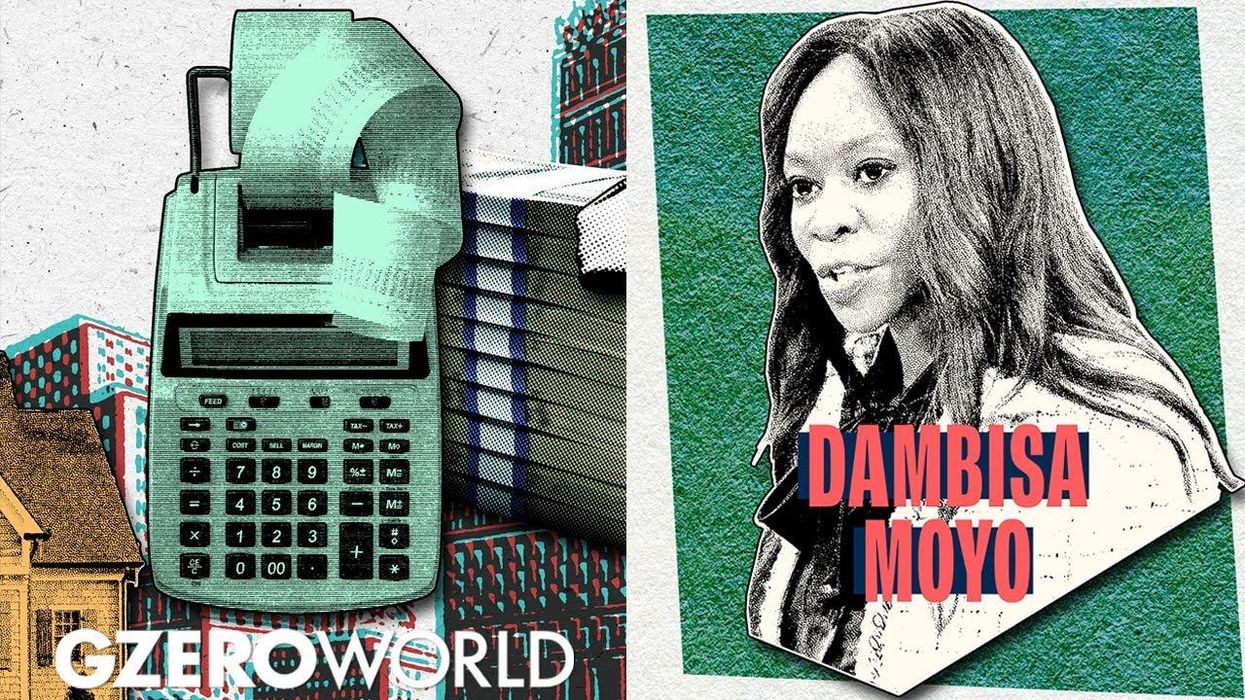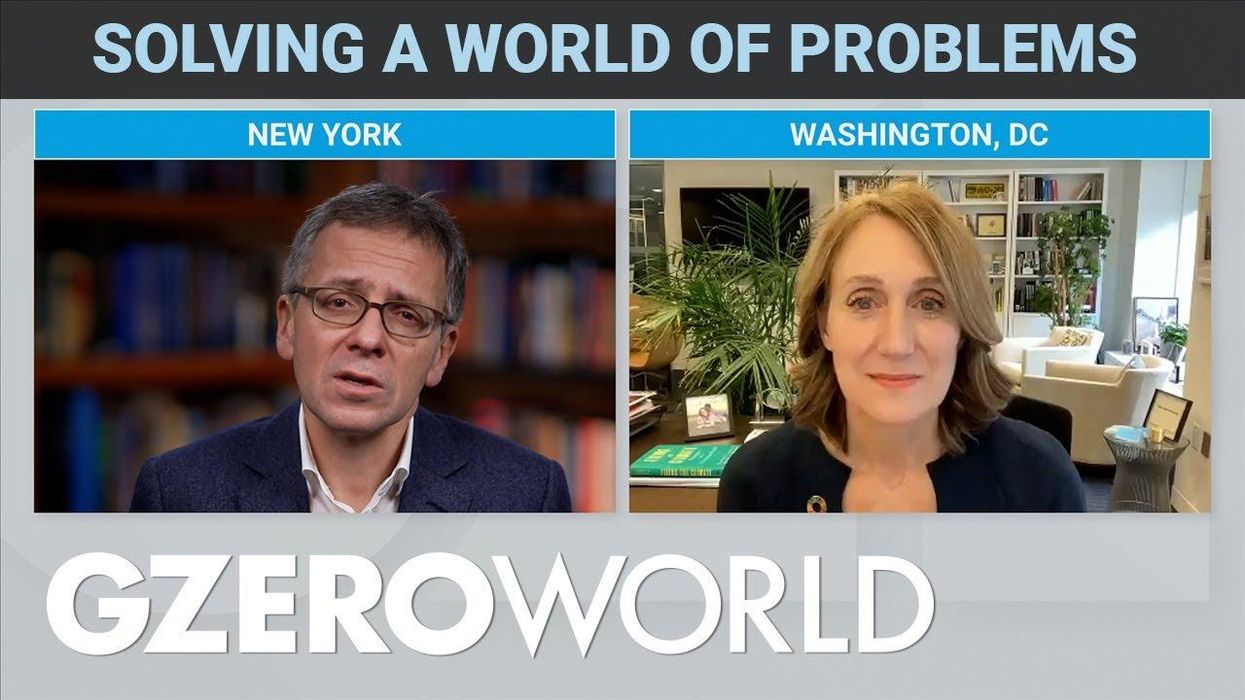Abu Dhabi Global AI Summit
Inclusion by design: Rebeca Grynspan on AI, inequality & global reform
At the 2025 Abu Dhabi Global AI Summit, UNCTAD Secretary-General Rebeca Grynspan warns that without deliberate action, the world’s poorest countries risk exclusion from the AI revolution. “There is no way that trickle down will make the trick,” she tells GZERO Media’s Tony Maciulis. “We have to think about inclusion by design."
Nov 04, 2025
